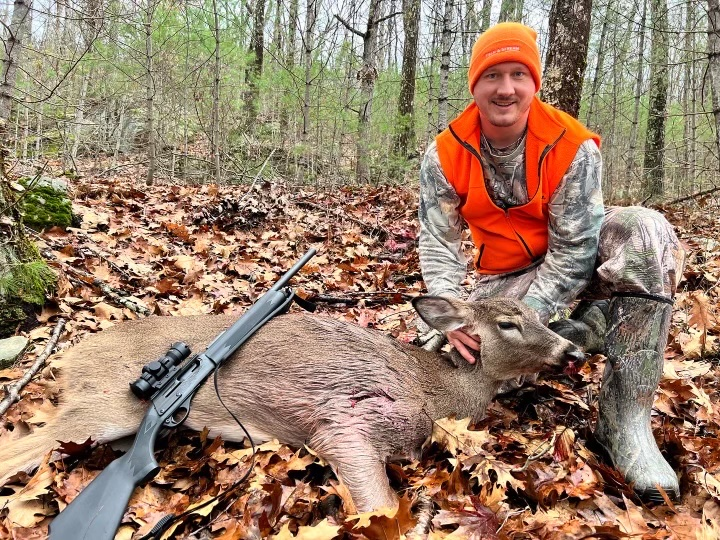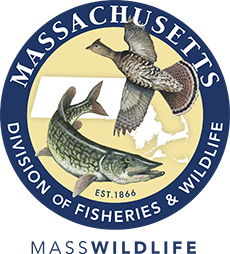- Division of Fisheries and Wildlife
Media Contact
Media Contact, MassWildlife

Deer hunting seasons are just around the corner. You might be surprised to know that hunting is: 1. good for our forests, 2. good for our climate, and 3. helping to alleviate food insecurity in the Commonwealth.
Common throughout Massachusetts, white-tailed deer are an important part of the ecosystem and a valuable natural resource. Deer densities vary from an ideal range of about 12–18 deer per square mile in most of central and western Massachusetts to more than 30–50 deer per square mile in areas of eastern Massachusetts and on the islands where hunting access is mostly restricted. In places with too many deer, forests can become degraded when deer eat too many tree saplings and seedlings. When forests are damaged by over-browsing, they can no longer provide vital habitat for other types of wildlife.
Forests naturally store a significant amount of carbon dioxide, which is crucial for slowing climate change. When deer prevent regeneration of certain tree species and the composition of the forest is altered, forests become less effective at capturing and storing carbon. Excessive deer browsing can impact forests in other ways including increasing the risk of wildfires. Small dead or dying trees and shrubs can serve as “ladder fuels” that provide a pathway for fire to spread from the ground to the canopy of a forest.
High deer densities are also compounding impacts from climate change on coastal erosion along the shorelines of Nantucket and Martha’s Vineyard. When large numbers of deer walk on worn-down trails along cliff edges, weak points are created causing cliff sides to break off. Bedding sites along the beach can damage the vegetation that stabilizes sand and prevents it from being washed or blown away.
Historically, deer populations in Massachusetts were controlled by three main predators: mountain lions, wolves, and humans. Now that mountain lions and wolves are absent from the Commonwealth, regulated hunting provides the main check to the deer population. MassWildlife uses regulated hunting to manage deer abundance across the state. In areas open to hunting, regulated seasons and carefully allocated deer hunting permits are effective ways to maintain deer abundance at levels the landscape can support.
Licensed hunters serve a vital role in conserving Massachusetts forests while providing healthy food to their communities. Each year, harvested venison provides more than 1.8 million family meals to hunters across the Commonwealth with a lean, healthy source of protein and a low carbon footprint. MassWildlife’s new Hunters Share the Harvest Program provides an opportunity for hunters to donate wild game meat to Massachusetts residents in need. After a successful pilot in 2022, in which generous hunters donated more than 1,500 meals of venison, the program is expanding in 2023.
Hunting is a safe and highly regulated activity; all hunters must be properly trained and licensed. Revenue from hunting licenses is used to conserve all wildlife species and their habitats right here in Massachusetts. Learn more about deer management in Massachusetts and view the 2023 hunting season dates.
